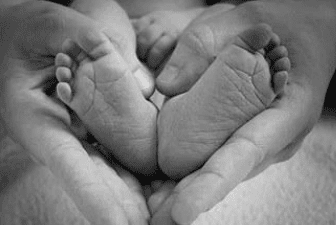As a parent, recognizing the symptoms of chickenpox in babies is crucial. Chickenpox is a contagious disease caused by the varicella-zoster virus which often affects many young children and is transmitted to those who have previously had chickenpox or received the chickenpox vaccine. To identify the signs and symptoms of chickenpox that may attack your baby, pay attention to the following article.
Symptoms of Chickenpox in Babies
Chickenpox that affects babies is a contagious disease caused by the varicella-zoster virus. Here are some of the symptoms of chickenpox in babies that you should look out for:
1. Red Spots
The most easily identifiable symptom of chickenpox in babies is the appearance of small red dots that can be seen on the baby’s skin. Generally, these red spots will appear all over the baby’s body, from the legs to the face. The chickenpox on the baby’s skin will blister and the spots will be filled with fluid. This symptom sometimes appears first on the face or hands before spreading slowly to other parts of the body such as the stomach, back, head, and legs. These red spots can be easily recognized because they differ from ordinary rashes.
2. Increased Irritability
Another indication that your baby has been exposed to chickenpox is if they become much more irritable than usual. Chickenpox experienced by babies will make them uncomfortable and restless, so they will always be tantrumming. In fact, infants may cry intensely because they feel an unusual itch and fever. If you see your baby throwing excessive tantrums, be sure to calm them down and hug them so that they can feel a little more comfortable while ensuring continuous care.
3. Fever
When your baby is infected with the chickenpox virus, their body will automatically experience a fever. This fever is the body’s attempt to get rid of the virus. Sometimes, the baby’s body temperature increases to 37.5 degrees Celsius. The resistance that comes from the baby’s body will make it release a chemical called cytokine. These cytokines make the baby’s body experience fever and inflammation. Generally, this fever can decrease by itself, but of course, you must help your baby feel more comfortable and not feel frightened.
4. Intense Itching
The red spots that appear on the baby’s skin will also be accompanied by intense and excessive itching. This happens because the baby’s skin will release a chemical that activates the nerves in the skin, causing a reaction—a feeling of itching. After a few days and weeks, the red spots on the skin will rupture, then dry and cause scabs on the baby’s skin. However, you don’t need to worry too much because the scars from chickenpox will peel off automatically after some time. To speed up the healing process of chickenpox scars, you can apply a special lotion that can be used regularly by babies. Try to apply the lotion after bathing the baby so that the results can be even more maximal.
By recognizing the symptoms of chickenpox in babies, you can take prompt and appropriate action to treat them. If you suspect that your child has chickenpox, take them to the doctor immediately and do not let them interact with other children. Remember to keep your baby clean and comfortable to speed up the healing process.




